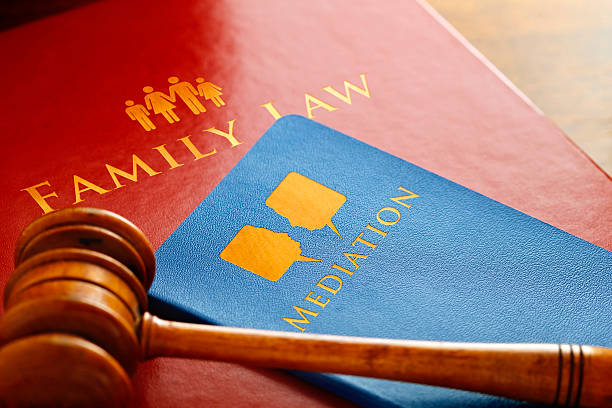Introduction
Divorce is often viewed as a tumultuous and adversarial process characterized by conflict and contention. However, there is an alternative approach that emphasizes cooperation and communication: divorce mediation. In this article, we’ll explore the concept of divorce mediation and its benefits, shedding light on how it can facilitate a smoother and more amicable dissolution of marriage.
Understanding Divorce Mediation
Divorce mediation is a voluntary process in which divorcing couples work with a neutral third party, known as a mediator, to reach agreements on various aspects of their divorce, such as property division, child custody, and financial support. Unlike traditional litigation, which can be costly and contentious, mediation fosters open dialogue and collaboration between spouses, empowering them to make mutually beneficial decisions.
The Role of Family Law Attorneys
While divorce mediation emphasizes cooperation and mutual agreement, the guidance of family law attorneys can still be invaluable throughout the process. Attorneys specializing in family law can provide legal advice and support to individuals participating in mediation, ensuring that their rights and interests are protected while navigating the complexities of divorce.
Benefits of Divorce Mediation
- Reduced Conflict: Divorce mediation encourages constructive communication and compromise, minimizing the potential for conflict and hostility between spouses. By working together to find solutions, couples can avoid the wrath often associated with traditional divorce proceedings.
- Cost-Effective: Mediation is typically more cost-effective than litigation, as it involves fewer court appearances and legal fees. By streamlining the process and focusing on resolution rather than litigation, couples can save both time and money.
- Faster Resolution: Mediation tends to result in quicker resolutions compared to traditional divorce proceedings, which can be prolonged and drawn out. By addressing issues directly and collaboratively, couples can expedite the divorce process and move forward with their lives more quickly.
- Customized Solutions: Unlike court-imposed judgments, which may not fully address the unique needs and circumstances of each family, mediation allows couples to tailor agreements to their specific situation. This flexibility enables spouses to create solutions that work best for their family dynamics and individual preferences.
- Preservation of Relationships: Divorce mediation promotes a more amicable and cooperative approach to divorce, which can help preserve relationships, especially when children are involved.
Exploring Alternatives: Is Divorce Mediation Right for You?
Before embarking on the journey of divorce, it’s essential to consider all available options. Divorce mediation offers a collaborative approach, fostering open communication and tailored solutions. However, it’s only suitable for some situations. Factors such as the complexity of legal issues and the level of conflict must be taken into account. Consulting with experienced family law attorneys can help individuals assess whether mediation aligns with their needs and circumstances.
Conclusion
Divorce mediation offers a constructive and collaborative approach to resolving the issues associated with divorce. By engaging in open dialogue and working together with the assistance of a neutral mediator and family law attorneys, couples can navigate the process with greater ease and efficiency.
With its emphasis on communication, cooperation, and customized solutions, mediation empowers divorcing couples to take control of their futures and move forward with confidence. Whether it’s reducing conflict, saving time and money, or preserving relationships, the benefits of divorce mediation are undeniable.
By choosing mediation, couples can achieve a smoother, more amicable divorce experience, laying the groundwork for a positive transition into the next chapter of their lives.

